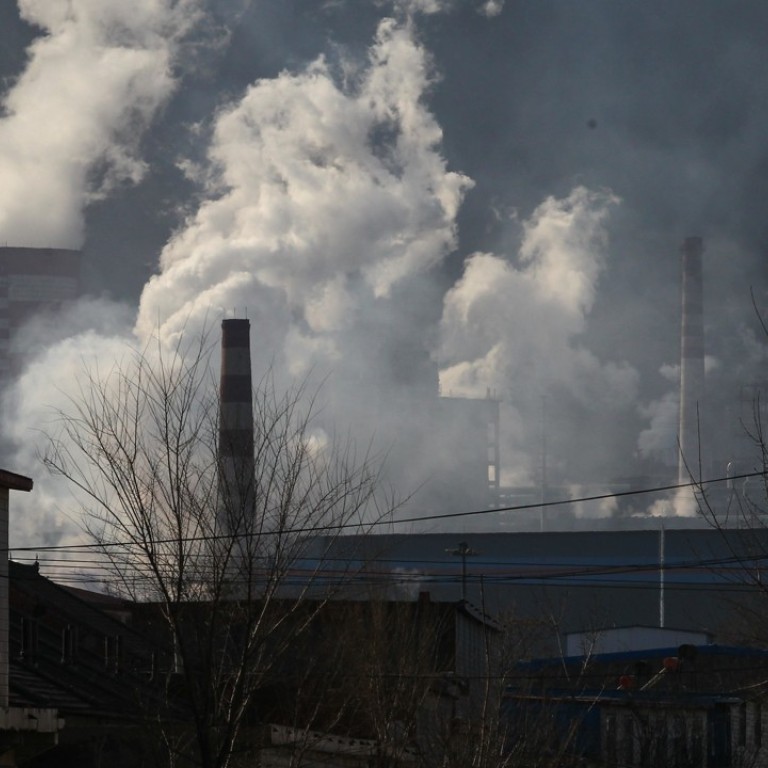
Letters to the Editor, September 12, 2017
China’s ad hoc plant closures are disruptive
Whenever there is a major international conference in a mainland city, like Beijing, for example, the central governments creates blue skies by closing down factories within a range of about 20km.
However, recently I have noticed that this is being done even when there is no such meeting. Local governments have decided to shut down whole industries they consider to be in some way polluters. This results in major disruptions of supply chains.
It really does not matter whether you are a green factory or not, they authorities just shut you down for at least a month for inspections.
One sector hit is the carton industry and, by hurting these manufacturers, you hit almost any other sector, as almost 99 per cent of goods must be packed in cartons.
When these inspections take place at dyeing mills, for instance, operations are ordered to stop, hurting the garment, furniture and curtain industry, and any other manufacturer using textiles.
I fully understand that China wants to tackle pollution, but ad hoc measures should not be implemented. What is needed in the fight against pollution are five and 10-year plans, and standards which all industries must adhere to.
All industries would have to make a corrective action plan before a set deadline, but it would be enough time to ensure that they can take the necessary steps towards becoming green, without any disruption to the supply chain.
It would also help customers get used to higher costs, and then we could see blue skies for good, rather than just during short periods.
The government could offer, for example, tax breaks, subsidies and cheap loans to ensure compliance. The present arbitrary arrangements lead to factories closing down and workers being laid off, with the possibility even of some firms moving to another country.
If this were to happen over a number of regions and so lead to increased unemployment, it would cause social unrest.
Officials with their iron rice bowls just don’t think about this. Everyone can benefit from a well-structured five- or 10-year environmental plan.
Jeffry Kuperus, Clear Water Bay
Anthem snub is a protest against Beijing
I agree with those who argue that we should show respect for the national anthem, no matter how much we dislike the Chinese government, because there is no doubt that the country has helped in the development of Hong Kong.
However, having a national anthem law will not get to the root of the problem: the reason behind Hong Kong people sometimes showing blatant disrespect for the anthem.
This is their way of objecting to a stance of the central government, such as the attitude it is adopting towards “one country, two systems”. And they will continue to voice their objections, so long as Beijing continues to act in this way.
Eric Chan, Tseung Kwan O
Don’t tar every student with the same brush
This poster was put up at the Education University after the son of Hong’s Kong’s deputy education chief, Christine Choi Yuk-lin, committed suicide.
The issue is far from black and white.
In legal terms, those who put up this offensive poster did not break the law, and student leaders have pointed out that this is a democracy wall after all.
However, from a moral standpoint, such an act is totally unacceptable, and goes against traditional Chinese beliefs, which place emphasis on a strict code of morality, including filial piety.
But any condemnation should be based on reason. It is unfair to tar all EdU students with the same brush (“School heads condemn suicide taunt as employers ‘vow never to hire’ Education University students”, September 9).
It is not right that some schools rejected internships for EdU undergraduates and other employers said they would never hire its graduates.
Students at EdU are being trained as teachers. They will educate the next generation. It is not fair for them to be subjected to a blanket condemnation, because of the actions of the individuals who put up this poster.
School heads need to think rationally and not make hasty decisions when considering applicants for internships.
Cherry Yeung, Hang Hau
Melting polar ice caps are a concern for all
The photo used to illustrate the letter showed a polar bear testing thinning ice.
The Arctic and Antarctica and their problems with melting ice caps, caused by global warming, may seem a long way from Hong Kong. But citizens throughout the world have a responsibility to support initiatives that seek to save these fragile and precious ecosystems.
As the ice in the polar regions melts, sea levels will rise. Habitats will be lost and more species of animal will become extinct.
We should all do more to protect the planet.
George Ng Kei-chun, Sheung Shui

